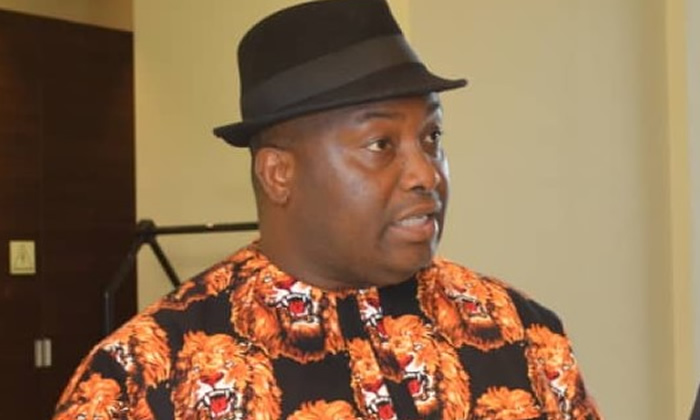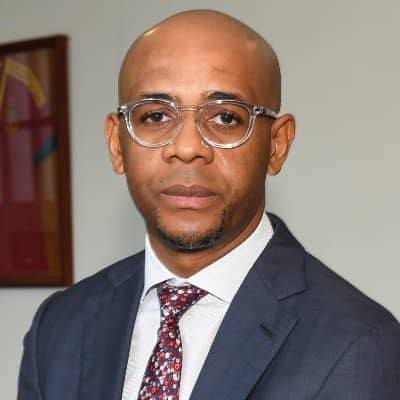
A former Secretary-General of the Commonwealth, Chief Emeka Anyaoku, last week gave a damning assessment of the 1999 constitution.
He insisted that the constitution would prevent the country from achieving meaningful development.
The same week, the National Judicial Council (NJC) suspended two judges for misconduct.
These and three other stories we tracked dominated public discourse last week.
1. Anyaoku’s candid assessment of 1999 constitution

On November 14, the former Commonwealth scribe posited that the 1999 constitution was not suitable for Nigeria’s pluralistic society and called for a truly federal constitution that could address the country’s challenges.
Anyaoku made the remarks at the launch of a book titled: “The Noble Academic and Patriot: A Biography of Emeritus Professor Akinjide Osuntokun at the Nigerian Institute of International Affairs (NIIA) in Lagos.
He said: “Nigeria, like many other countries, is a pluralistic society, with diverse peoples living in separate geographical areas, with different histories, cultures, languages, and religions.
“The universal lesson is that pluralistic countries, which have survived as single political entities in unity and progress, are those that address their pluralism, that is, their diversity, with genuine federal constitutions. Examples of such countries are India, Canada, and Switzerland.”
Why it matters
The elder statesman’s latest assessment of the 1999 constitution again highlights the need for Nigerians to come up with solutions to problems drawing back the country, with the current document put in place by the military identified as a major impediment to its progress.
Anyaoku’s remark is also an illustration of the current state of Nigeria, a country plagued by economic hardship, insecurity, and other social maladies occasioned by bad leadership.
2. NJC suspends two judges for misconduct

The National Judicial Council (NJC) on November 15 suspended two judges for misconduct.
The affected judges were – Justice G.C. Aguma of the Rivers State High Court and Justice A.O. Nwabunike of the Anambra State High Court.
The NJC’s Deputy Director of Information, Kemi Babalola-Ogedengbe, who disclosed this in a statement in Abuja, said the council also recommended the Chief Judge of Imo State, Justice T. E. Chukwuemeka Chikeka and the Grand Kadi of Yobe State, Kadi Babagana Mahdi, for compulsory retirement for falsification of age.
The statement read: “The council found that Kadi had three different dates of birth (December 10, January 28, and July) all in 1959, while his actual date of birth was 1952.
“The findings of the council also revealed that Justice Chikeka has two different dates of birth: October 27, 1956, and October 27 1958.
“However, 27 October 1956 appeared to be the consistent date of birth, but in 2006, the Chief Judge swore to an affidavit changing the date of birth to 27 October 1958.”
Why it matters
The NJC’s sanction and the reasons behind it show the extent of the rot in the nation’s judiciary which has come under the searchlight for wrong reasons in recent times.
To ensure judicial officers continue to uphold the rule of law and the effective administration of justice in Nigeria, the council should wield the axe more to rid the system of bad eggs.
3. Obasanjo’s ‘failing state’ tag on Nigeria

Former President Olusegun Obasanjo on November 16 described Nigeria as a “failing state” marked by pervasive corruption and leadership failure.
He also referred to President Bola Tinubu with the moniker “Baba-go-slow” and “Emilokan,” to drive home his views on the lackluster leadership in the country.
The former president stressed that Nigeria’s dire situation is evident to “every honest person.”
READ ALSO: QuickRead: PDP dares APC on 2027 election. Four other stories we tracked and why they matter
Obasanjo, according to a statement issued on Saturday by his media aide, Kehinde Akinyemi, spoke at the Chinua Achebe Leadership Forum held at Yale University, New Haven, Connecticut, the United States.
He said: “The more the immorality and corruption of a nation, the more the nation sinks into chaos, insecurity, conflict, and disunity.
“The failing state status of Nigeria is confirmed and glaringly indicated for all to see.”
Why it matters
For the umpteenth time, the former military ruler has hit the nail on the head about Nigeria, a country currently ravaged by economic hardship and other problems occasioned by the government’s incoherent policies.
While Obasanjo has challenged the authorities to fix the problems, he may have unconsciously tasked Nigerians to get it right in their leadership recruitment process in the effort to get the country out of the woods.
4. Supreme Court upholds EFCC’s legitimacy

The Supreme Court on November 15 dismissed the lawsuit initiated by some state governments challenging the establishment of the Economic and Financial Crimes Commission (EFCC).
The case originally filed by the Attorneys-General of 16 states, questioned the constitutionality of the EFCC Act which established the anti-graft agency.
Justice Abba-Aji, who delivered the lead judgement, resolved the six issues raised by the plaintiffs against them.
He ruled that the laws establishing the EFCC and other anti-corruption agencies were validly enacted by the National Assembly within its legislative competence.
“The EFCC Act, derived from a convention and not a treaty, does not require ratification by state assemblies,” Justice Abba-Aji stated.
Why it matters
The Supreme Court’s ruling has effectively ended all questions/controversy surrounding the establishment of the EFCC or other anti-graft agencies.
This ruling will now ensure a more holistic approach in the commission’s efforts to tackle corruption and restore public trust in the ability of the government to meet their needs and deliver quality governance at all levels.
5. Bwala’s appointment as Tinubu’s aide

President Bola Tinubu on November 14 appointed a lawyer-turned-politician, Daniel Bwala, as his Special Adviser on Media and Public Communication.
The Special Adviser on Information and Strategy to the President, Bayo Onanuga, disclosed this in a terse statement in Abuja.
The statement read: “The Special Adviser on Public Communications and Media, Mr. Daniel Bwala is a lawyer and notable public affairs analyst.”
Why it matters
Tinubu’s appointment of Bwala, a spokesman of the opposition candidate in the 2023 election, will not surprise Nigerians considering how he had courted the president since he assumed office 18 months ago.
However, the development has reinforced the opinion of Nigerians on politicians as “people without any iota of shame,” whose primary motive in the game is personal rather than collective interest.
The post QuickRead: Anyaoku’s assessment of 1999 constitution. Four other stories we tracked and why they matter appeared first on Latest Nigeria News | Top Stories from Ripples Nigeria.

.png) 2 hours ago
1
2 hours ago
1








.png)









 English (US) ·
English (US) ·